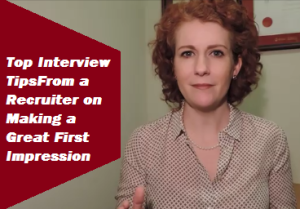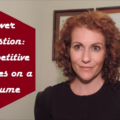The questions you ask at the end of a job interview are almost as important as the answers you provide the interviewer. At the end of your interview, you will likely be asked if you have any questions. If you don’t have any, then you may give the interviewer the impression that you are not interested in the role or that you haven’t done your research.
As a best practice, make sure you bring a list of questions with you to your interview. Although it is recommended to only ask 2-3 questions, some of your questions may be answered naturally through your interview – so be sure to prepare a minimum of 6-7 questions just in case!
Questions to Avoid
Before diving into examples of questions you could ask, let’s take a look at the questions you should avoid, namely salary, benefits, and vacation. When you ask about salary and benefits, you could give the impression that you care more about the money and benefits than the role or company. In terms of vacation, you could give the impression that you are already planning a vacation before you’ve started.
That said, you can ask about salary, benefits, and vacation during a follow-up conversation after your 2nd or 3rd round interview (ideally with the recruiter or Human Resources representative). Alternately, if the interviewer broaches this topic, then you should engage in an open conversation.
Questions to Ask
There are three main categories of questions that you can ask: organizational questions, department (or team) questions, and role questions. Let’s take a look at each.
- Questions about the Organization
- Use your research – this is the perfect opportunity to showcase the research you would have conducted. As an example, if a recent news article noted a merger or acquisition, you can ask how this might impact the organization or department.
- Charitable work – most large organizations donate time and money to charitable causes and will highlight this on their website. If the organization you are interviewing with is a good corporate citizen, ask about their involvement in the causes they list on their website or other causes that are important to you.
- Department:
- The leader – if you are interviewing with someone other than the person the role reports to, ask about that person. For example: “Can you tell me more about the manager for this role?”
- Size of team – you may want to ask about the size of the team you could be potentially joining, and follow up with questions about the experience and tenure of other team members. For example: “Can you tell me a bit more about the team?” “How many people are on the team currently?” “Has this team worked together for a long time?” You may gain insight on the amount of turnover the team has experienced.
- Other teams – many roles will provide the opportunity for teams from various departments to collaborate. You can ask questions like: “Does this role or team work on cross-functional projects?” “How often would this role interact with other teams?”
- Role
- Reason for the opening – in most cases you will know whether or not a role is new or existing. If it is not clear by the end of your interview, it is a good idea to ask “is this a new or existing position?” If it is an existing role, you can ask “why is the role currently vacant?” This could provide you with insight on internal mobility or promotional opportunities within the organization.
- Measures of success – unless this has been covered in your interview, you may want to ask: “How is success measured in this role?”
- Expectations for the successful person – a great question to ask in your interview is “What are the expectations of the person in this role in the first 30, 60, and 90 days?”
Having a list of questions is a key component of preparing for your job interview. Having well thought out questions could make you stand out among the competition.
If you have any other recommended questions to ask in an interview, please feel free to leave them in the comments below. If you have any questions, video ideas, or would like to collaborate, please feel free to contact me directly. For personalized advice, check out the services section here.
In the meantime: Happy Hunting!










